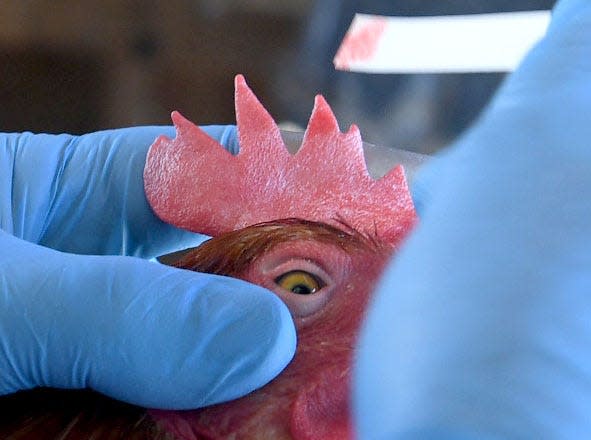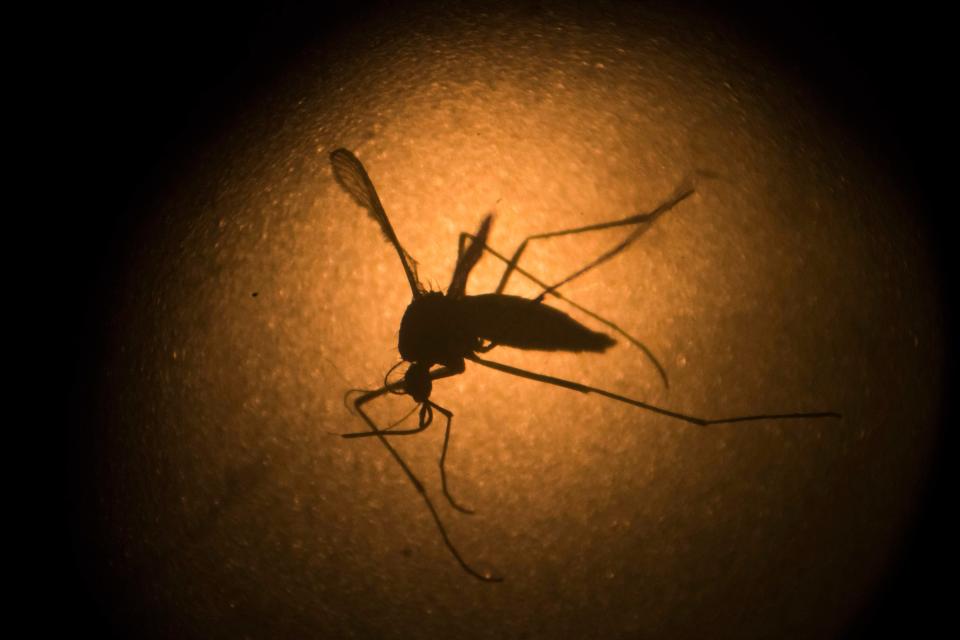Mosquito surge brings Ventura County's first West Nile case in 4 years

Potent winter storms, summer heat and tropical storm Hilary have bred a surge of invasive, day-biting Aedes mosquitoes and also helped spawn Ventura County’s first reported human case of West Nile virus in four years.
County public health officials revealed the infection Thursday, several days after it was confirmed by state officials. The virus, carried by types of the Culex mosquito, often brings no illness and on occasion causes flu-like symptoms. In less than 1% of the cases, it can cause neurological conditions like meningitis and encephalitis.
The county resident who was infected developed a serious West Nile illness and was hospitalized but has recovered, said Dr. Robert Levin, county health officer. He wouldn't reveal any details because of privacy concerns.
The virus report — the first in the county since two cases in 2019 — comes as part of a statewide rise that has brought 153 West Nile reports, more than double last year's. It has also stoked concern about other mosquitoes including the day-biting Aedes aegypti and has prompted urgings for people to drain standing water and take other measures.
“People need to be on their toes. They need to be concerned about mosquito bites,” Levin said.
'Final push'
The upswing is marked by if not a perfect storm, a stinging one. First came the deluge of rain early in the year and triple-digit heat in July and August. Hilary, the hurricane turned tropical storm, provided the exclamation point by pouring several inches of rain on pools, flower pots, arroyos and other breeding grounds.
“It was the final push. It provided the mosquitoes just what they needed,” said Cary Svoboda, lead of the mosquito control program at Ventura County Environmental Health Division.
The Culex mosquitoes are found across California. Concern in the county rose in June with the confirmation of three dead birds infected with West Nile found in June in Simi Valley, Thousand Oaks and Ventura. Public health officials said the birds could be harbingers of increased virus risks, though no more infected birds have been found.

Zapping in self-defense
The Culex mosquitoes can be dark or light brown. They mostly bite from dusk to dawn.
Aedes aegypti mosquitoes are small and black with white stripes on the back and legs. They bite aggressively during the daytime, sparking concern because they have the potential to carry carry diseases like Zika, dengue, chikungunya and yellow fever, though there are no reports of that happening in California.
For years, the Aedes mosquitoes were found in neighboring Los Angeles and Kern counties but not in Ventura. That changed in 2020 when the invasive species, also known as yellow fever mosquitoes, were discovered in several local communities.
Reports of Aedes aegypti have leaped this year, Svoboda said. They’ve been found in every community except for Camarillo and Port Hueneme. They haven’t been reported in the city of Santa Paula but have been identified nearby.
"If I’m doing work outside, especially garden work, that’s when I get them going after me," said Mark Westerline of Simi Valley who arms himself with a bug zapper that looks like a tennis racket. "I take a couple of swings and that’s my new sport."
Westerline works as vector control specialist in Moorpark. There, the day-biters have generated a near-record number of mosquito complaints in the last month.
"It’s definitely got itself more entrenched, and it's in more neighborhoods,” he said
Reduce risks
Aside from bug zappers, vector control and public health officials push people to take other steps:
Empty standing water from buckets, barrels, saucers under flower pots and other containers.
Clean properties of toys and other objects that can hold water.
Replace water in pet dishes and bird baths.
Repair damaged screens on doors and windows.
Wear insect repellent outdoors, especially at dusk and dawn.
Report mosquito activity to a hotline at 1-805-658-4310.
For mosquito fish that can be used in pools and ornamental ponds, call 1-805-662-6582.
Tom Kisken covers health care and other news for the Ventura County Star. Reach him at tom.kisken@vcstar.com or 805-437-0255.
SUPPORT LOCAL JOURNALISM: To see more stories like this, subscribe
This article originally appeared on Ventura County Star: Invasive Aedes mosquitoes surge across Ventura County

